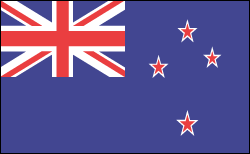New Zealand History


Instituting Social Welfare
From the outset, the country has been in the forefront of social welfare legislation. New Zealand was the world's first country to give women the right to vote (1893). It adopted old-age pensions (1898); a national child welfare program (1907); social security for the elderly, widows, and orphans, along with family benefit payments; minimum wages; a 40-hour workweek and unemployment and health insurance (1938); and socialized medicine (1941).
New Zealand fought with the Allies in both world wars as well as in Korea. In 1999, it became part of the UN peacekeeping force sent to East Timor.
In recent years, New Zealand has introduced extremely liberal social policies. In June 2003, Parliament legalized prostitution and in Dec. 2004, same-sex unions were recognized. In 2005, Helen Clark was elected for the second time. She lost her reelection bid in 2008, when the center-right National Party, led by John Key, took 45.5% of the vote in parliamentary elections. Clark's Labour Party garnered 33.8%. Key became prime minister in November. Key's win ended nine years of governance by the Labour Party.







